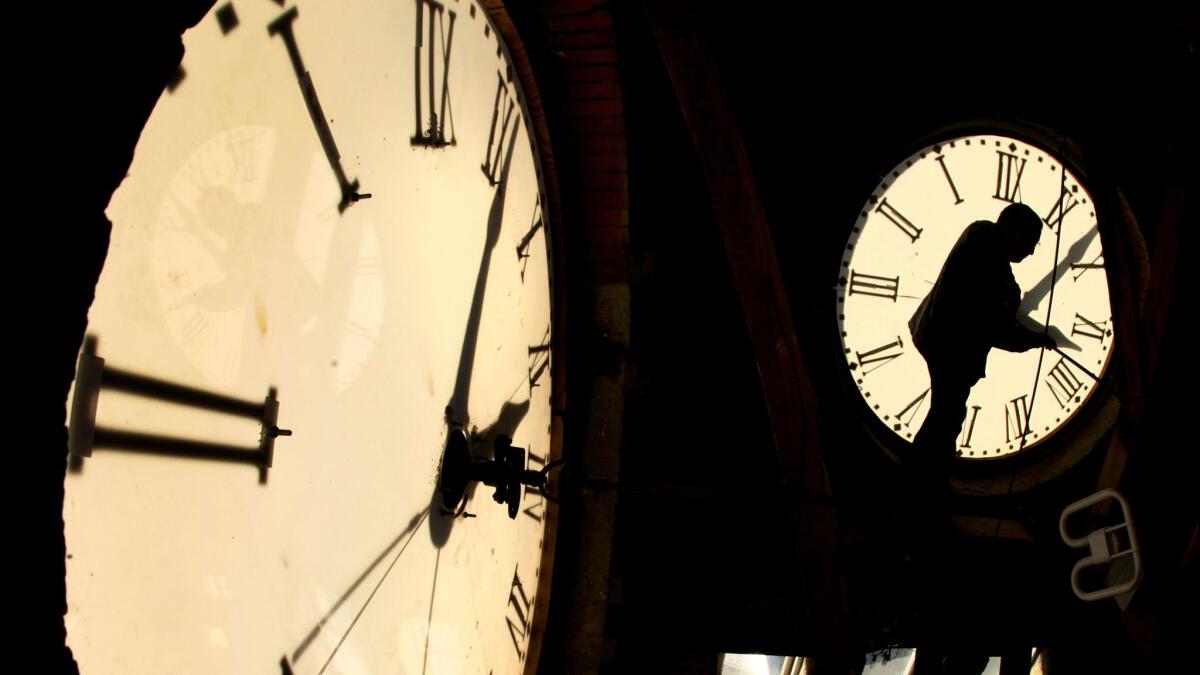Turn your clocks ahead this weekend, but not if youâre visiting these U.S. locations

Donât forget to turn your clock ahead to Daylight Saving Time early Sunday, unless you are visiting Hawaii and most of Arizona. Those places never make the switch.
Florida lawmakers favor keeping Daylight Saving all year voted with passage of something called the Sunshine Protection Act. The governor has yet to weigh in.
Massachusetts and Maine, meanwhile, are veering toward ditching Daylight Saving Time.
As of 2007, most of the U.S. âsprings forwardâ on the second Sunday in March. Bermuda, much of Canada, Cuba, Haiti, the Bahamas and Turks & Caicos also move on March 11.
Tock of the world: Seven great clocks around the globe »
Europe wonât make the move until 1 a.m. March 25.
Why do states opt out of the Uniform Time Act of 1966? Arizona simply doesnât need more daylight to extend its already hot days. The exception in that state is the Navajo Nation, which covers the northeastern part of Arizona and slices of New Mexico and Utah.
Hawaii chose to disregard the act in 1967 because nothing was gained by extending its days. The Aloha State is so close to the equator that the sun rises and sets just about the same time every day.
The same is true of U.S. territories Guam, Puerto Rico, American Samoa and the U.S. Virgin Islands.
And before you get cranky about having to hand-wind your grandfather clock, consider that history shows there were good reasons for the time changes. For one thing, Daylight Saving Time was a useful way of saving energy and fuel during both world wars.
In the U.S., Daylight Saving Time ends Nov. 4.
Twitter: @latimestravel
More to Read
Sign up for The Wild
Weâll help you find the best places to hike, bike and run, as well as the perfect silent spots for meditation and yoga.
You may occasionally receive promotional content from the Los Angeles Times.







